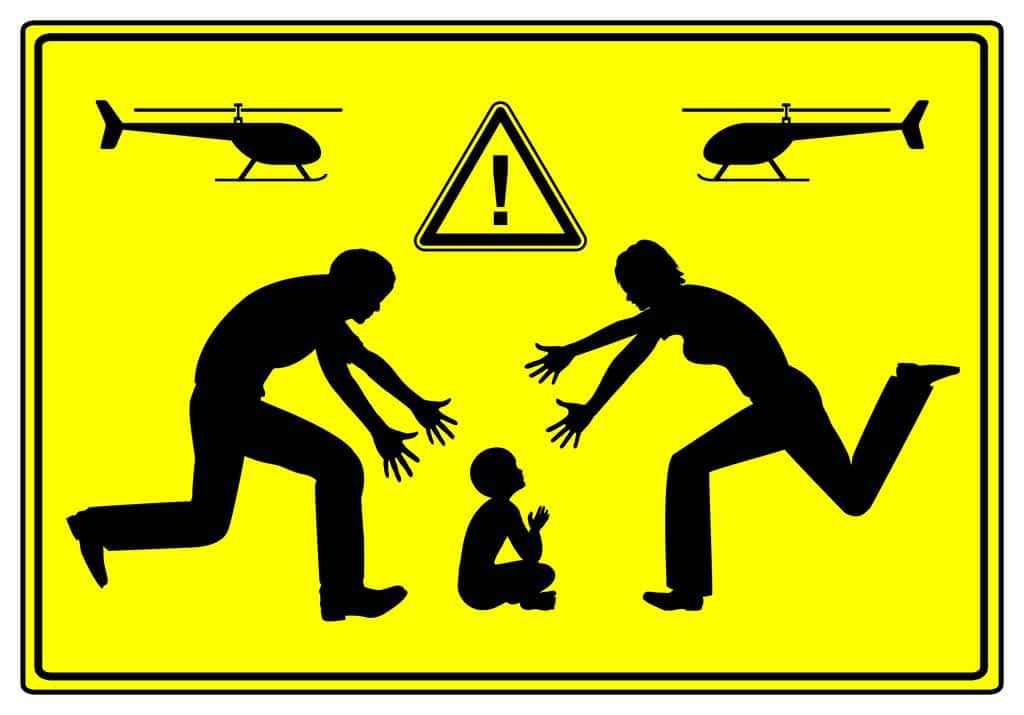30 Ways to Protect Yourself From an Angry Drunk
If you’ve ever had the “lovely” experience of trying to protect yourself from an angry drunk, then you know how utterly unpleasant, chaotic, scary, and sometimes traumatic it can be.
When dealing with a drunk partner, the ranting, the yelling, the screaming, and the destruction from an angry drunk spouse can be enough to give you PTSD and nightmares for the rest of your life. Or at least some major resentment in the relationship that can be hard to overcome. If you are a woman, or a child, it can be absolutely terrifying to see this person go berserk and lose control.
I’ve dealt with my angry drunk spouse many times, (who I secretly named “Drunky the Clown” when he starts acting like one. LOL! Hey, humor is what gets me through the day sometimes!) and I’ve known countless other women, of all ages, and walks of life who can relate.
Besides my own experience in dealing with a drunk partner, I’ve seen angry drunks decimate relationships, and worst of all, take lives. The destruction it does is incalculable, and has been for generations.

Key Highlights
- How to respond when things start to escalate
- What to do if you can’t leave the situation
- The one mindset shift that could keep you safer

I come from a family full of drinkers, myself included. I stopped for a variety of reasons, but my husband did not.
I’ve learned that when he gets snippy with me, I’m outta there before things escalate into another fight. Angry drunks have trouble trouble backing down, always wanting – no, having – to have the last word. When dealing with a drunk partner, if you try to defend yourself, angry drunks will likely turn the conversation into mockery and contempt, or worse.
I’ve come to a point in my life where my peace is more important than being “right” and I refuse to engage in much of any pointless talk with angry drunks who had too much.
What’s the use?
They likely won’t remember it anyway, but I will.

How to Protect Yourself From an Angry Drunk
An angry drunk spouse can create a situation that’s not only stressful, but risky. Their mood can turn dark in seconds, and what starts as a tense conversation can quickly turn into yelling, insults, or even physical aggression. You may find yourself walking on eggshells, trying to avoid setting them off—but that’s no way to live. The unpredictability alone can take a serious toll on your mental and emotional well-being. It’s important to see these patterns for what they are: warning signs.
💡Here are some steps to consider to stay safe:
1. Stay Calm and Avoid Engaging:
Impact: Keeping your composure can help de-escalate the situation. Avoid arguing or trying to reason with a angry drunks, as their judgment is impaired.
2. Maintain Physical Distance:
Impact: Create a safe space between you when dealing with a drunk partner. This reduces the risk of physical harm and can help diffuse the intensity of the situation.
3. Use Non-Confrontational Language:
Impact: Speak in a soft, calm voice and use neutral language. Avoid triggering phrases or accusatory statements that might escalate their anger.

4. Acknowledge Their Feelings:
Impact: Sometimes, acknowledging their feelings without agreeing or disagreeing can help calm and angry drunk. Simple phrases like, “I see you’re upset,” can be effective.
5. Avoid Physical Contact:
Impact: Physical contact can be misinterpreted by an angry drunk spouse and might escalate the situation. Keep your hands visible and avoid making sudden movements.
6. Exit the Situation if Possible:
Impact: If you can safely leave, do so. Removing yourself from the environment with angry drunks can prevent further conflict and protect your well-being.

7. Seek Help:
Impact: If your angry drunk spouse gets out of control, call for help. This could be a friend, family member, or, in severe cases, law enforcement.
8. Have a Safe Space:
Impact: When dealing with a drunk partner, if you’re at home, go to a room with a lock where you can wait until the angry drunk calms down or help arrives. Ensure you have access to a phone.
9. Avoid Alcohol-Fueled Environments:
Impact: If this is a recurring issue, consider avoiding situations where the person commonly drinks excessively.

10. After the Incident:
Impact: Once the person is sober, discuss the incident calmly. Express how their behavior affected you and set clear boundaries for the future.
11. Consider Professional Help:
Impact: If the person has a pattern of aggressive behavior when drunk, encourage them to seek professional help for substance abuse and anger management.
12. Protect Yourself:
Impact: Know when to prioritize your safety above all else. If you ever feel in immediate danger, do not hesitate to contact emergency services.
Dont worry about hurting their feelings when dealing with a drunk partner. They probably wont remember much anyway. Keep prioritizing your safety, as your top concern, no matter what.

How to Avoid an Angry Drunk Spouse From Raging at You When You Can’t Get Away
When you can’t just walk away from an angry drunk spouse, you’ve got to lean on smart strategies to protect yourself and keep things from spiraling out of control. It’s not ideal, but staying calm, setting firm boundaries, and knowing how to de-escalate can make a big difference in keeping yourself safe.
✔️Here are some steps you can take:
1. Stay Calm and Composed:
Impact: Your calm demeanor can help prevent further escalation. Take deep breaths and keep your voice steady and soft.
2. Avoid Confrontation:
Impact: When dealing with a drunk partner, do not argue or try to reason with them. Avoid any statements that could be perceived as accusatory or confrontational.
3. Use Short, Simple Responses:
Impact: Respond with short, non-provocative, gray rock phrases like “I understand” or “Let’s talk about this later.” This can help diffuse the immediate tension.

4. Acknowledge Their Emotions:
Impact: Sometimes, acknowledging their feelings can help calm them. Phrases like, “I can see you’re very upset,” can show empathy without escalating the argument.
5. Redirect the Conversation:
Impact: Try to gently steer the conversation with angry drunks to a neutral topic. This can sometimes distract them and reduce their agitation.
6. Use Non-Threatening Body Language:
Impact: Keep your body language open and non-threatening. Avoid crossing your arms, making sudden movements, or standing too close.

7. Create a Safe Zone:
Impact: Position yourself near an exit if possible, and make sure there are no objects around that could be used as weapons. This helps if you need to leave quickly.
8. Agree to Disagree:
Impact: If they are arguing a point, agree to disagree without pushing back. This can sometimes end the argument without admitting fault.
9. Offer a Solution:
Impact: If possible, offer a simple solution that can be acted upon later, such as, “Let’s sleep on this and talk when we’re both calmer.”

10. Limit Alcohol Access:
Impact: If possible, remove or limit their access to more alcohol, which could further fuel an angry drunk spouse.
11. Call for Help:
Impact: If you feel unsafe and the situation is escalating, discreetly call a friend, family member, or even law enforcement for assistance.
12. Practice Self-Care:
Impact: After the situation has calmed, ensure you take care of your own emotional and physical well-being. Talk to a trusted friend or counselor about the situation if possible.

More Tips to Protect Yourself From an Angry Drunk
👉There are a few more things to keep in mind when dealing with an angry drunk spouse, especially if you can’t leave the situation. These more subtle tactics might be helpful:
🚩Know Their Triggers:
Impact: Understanding what typically sets them off can help you avoid those topics or actions. This can help in preventing escalation.
🚩Stay Neutral:
Impact: Avoid expressing strong emotions, whether anger or fear, as these can fuel the person’s rage. Maintain a neutral, non-reactive stance.
🚩Use “I” Statements:
Impact: Frame your responses with “I” statements to avoid sounding accusatory. For example, “I feel uncomfortable when this happens” is less likely to provoke than “You always do this.”

🚩Defer Decisions:
Impact: If they are demanding answers or decisions, hold off on doing this until they are sober. Calmly say that it’s better to discuss important matters later.
🚩Use Active Listening:
Impact: Show that you are listening by nodding and making brief verbal acknowledgments. This can sometimes calm them by making them feel heard.
🚩Long-Term Considerations:
Impact: Reflect on the long-term viability of the relationship if these incidents are frequent. Ongoing exposure to such behavior can be harmful to your mental and emotional health.

Wrapping Up: Staying Safe When Dealing with a Drunk Partner
Dealing with angry drunks, whether it’s a partner, friend, or family member, isn’t easy. It takes a mix of empathy and backbone. The most important thing: protect yourself first. Your safety, emotionally and physically, comes before anything else.
If you’re trying to handle an angry drunk spouse, or someone who gets mean when they drink, setting clear boundaries is huge. Stay calm, stay firm, and don’t take the bait when the conversation turns into mockery or contempt.
And here’s something to remember: you’re not responsible for their behavior. You can’t fix it, and it’s not on you to try. Your job is to protect your peace, know when to step away, and ask for help when you need it.
You need to feel safe, and with the right approach, you can handle these tough moments without losing yourself in the process.

Thank you for reading this post, don't forget to subscribe!







